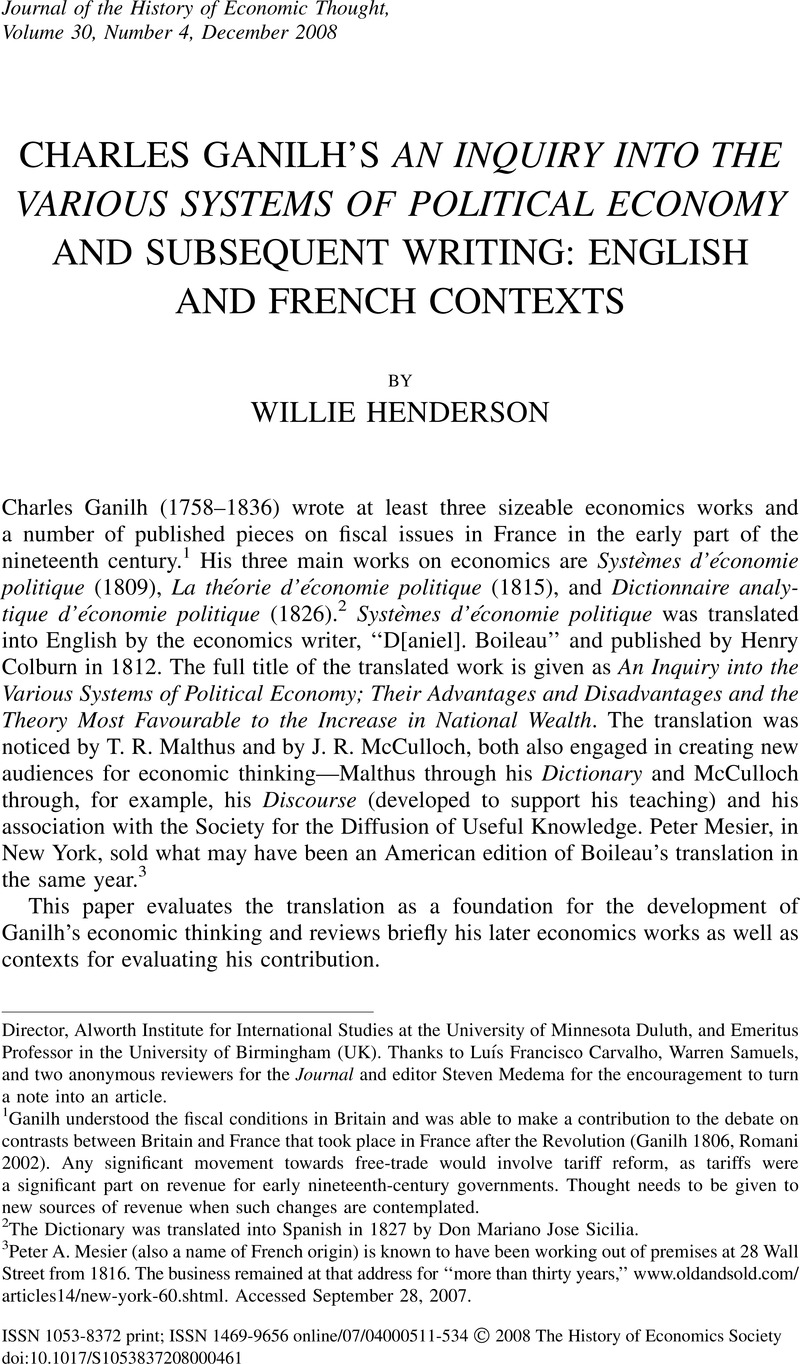Crossref Citations
This article has been cited by the following publications. This list is generated based on data provided by Crossref.
Henderson, Willie
2011.
Research in the History of Economic Thought and Methodology.
Vol. 29,
Issue. ,
p.
141.



